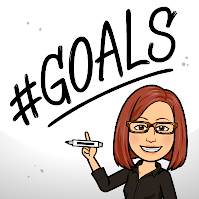Goals are a statement of what an individual, family, or organization wants to achieve in the future. Four months into 2023, it is still appropriate to consider setting goals. They are not just for New Year’s Eve. Actions to achieve personal and financial objectives can start at any time.
Below are some thoughts
about goal setting:
Benefits of Goals-
Goals provide focus, direction, and motivation (e.g., to cut spending to free
up money to invest), provide a “reality test” for dreams, serve as a reference
point to measure progress over time, and provide immense satisfaction when
achieved.
Goal-Setting Obstacles-
Common barriers include a lack of motivation, successful role models, and/or
time and uncertainty about process steps (e.g., how to set and/or achieve
goals).
The Need for a “Why?”-
Without goals, it is hard to make and/or sustain behavioral changes. Goals
provide a “why” for changed behavior (e.g., reduced spending or more physical
activity). A goal should be personally meaningful and big goals should be
divided into smaller chunks.
Holistic Goal Setting-
Experts recommend looking at your life holistically when setting goals. It is
perfectly fine for personal and professional goals to intertwine. For example,
making time to exercise early on days that you expect to work long hours or
attend multiple meetings.
SMART Goals-
SMART is an acronym for Specific, Measurable, Attainable, Realistic,
and Time-related. SMART goals have an anticipated cost and time
deadline. From there, you can “do the math” to determine attainability and
measure progress. Examples: save $10,000 toward the cost of a new car in 10
years and save 10% of salary in a 401(k) plan for 25 years.
The Need for Flexibility-
SMART goals cannot be too confining. Some flexibility is needed so if someone
“falls off the wagon,” they will not quit. If you get behind on goal
attainment, develop a “recovery plan” by answering the question “how can I make
this work?”
Envisioning the Future- It
can be empowering to visualize how you will feel when a goal is achieved. You
will likely be happy, proud, and inspired to achieve follow-up goals. Tools like
vision boards and online calculators can provide inspiration and a reminder of
what is possible.
Small Wins Matter-
Experts recommend dividing big goals into chunks and rewarding yourself each
time a “small win” is achieved. This helps people get through the “messy
middle” between where they start out and where they want to be.
Stuff Happens-
Experts in goal setting and behavior change advise people working on goals to
be graceful with themselves. Events will happen in life to throw you
off-course. Give yourself forgiveness as you would with others.
To set short-, medium-,
and long-term goals, use this worksheet.






No comments:
Post a Comment